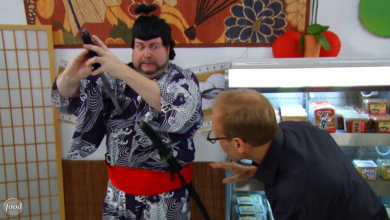Batman Ninja’s Problematic Imperialist Subtext
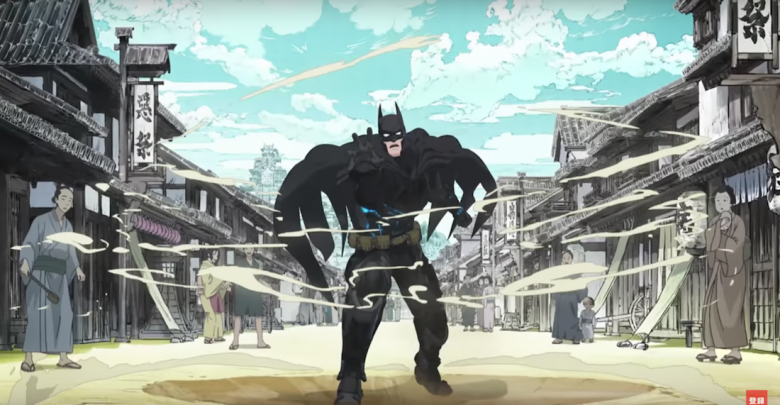
Batman Ninja (2018) – an anime-style reimagination of the popular DC Comics superhero (which is available in English and Japanese) – is so packed with visual bombast and fantastical twists that it is easy to overlook its problematic premise. Whether intentional or otherwise, its director (Takashi Okazaki) and writer (Kazuki Nakashima) have drawn from the white saviour trope and Hollywood’s Oriental gaze in their collaboration with Warner Bros.

Deathstroke prepares for battle while accompanied by a Lotus Blossom type.
The movie revolves around a sci-fi spin that curiously places Batman – and several of Gotham City’s heroes and villains – in the role of Western imperialists. After Gorilla Grodd’s time machine is accidentally activated during a fight, Batman is transported back in time to feudal Japan. He learns that the Joker, Poison Ivy, Gorilla Grodd, Penguin, Two-Face, and Deathstroke have all entrenched themselves as daimyōs (Edo period feudal lords). (Batman arrives two years later than the other Gotham City transplants). Each villain is competing to attain the position of shōgun: the ruler with absolute power over the entire archipelago.
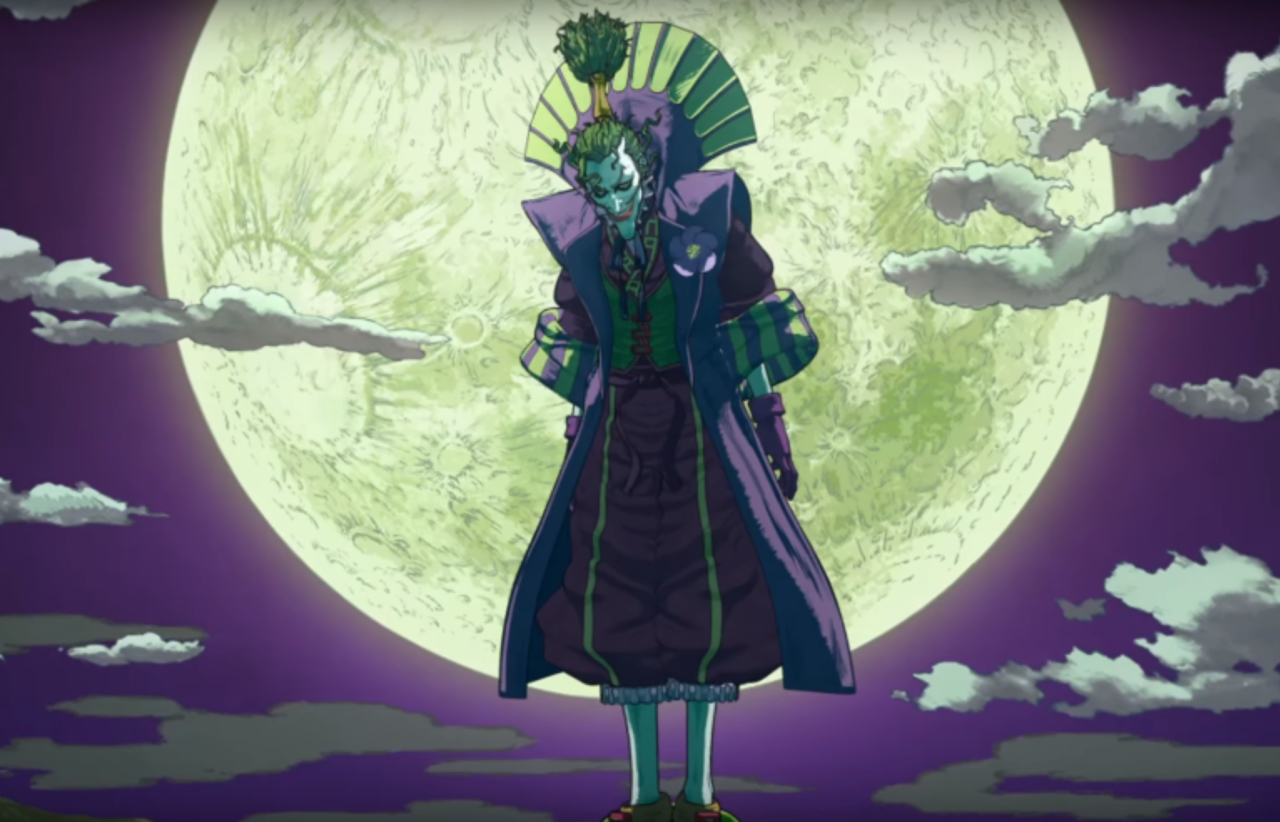
Lord Joker, the feudal lord closest to unifying Japan: “I’d hate to come all the way to ancient Japan and miss out on a samurai sword fight!”
This imperialist subtext is accompanied by a white saviour plot. Soon after arriving, Batman fights off the Joker’s samurai army and learns that he has local allies of his own. Eian, the leader of the Bat Clan of Hida, explains that his group of ninja’s entire existence revolves around an ancient prophecy:
“Legend foretells that when the country is in chaos a foreign ninja wearing the mask of a bat will come and restore order to our land. Bat Clan, we have waited all our lives for this moment. Serve this shinobi with your life. This is the hour of our destiny! Now we finally look upon you – great shinobi from across the sea of time – Lord Batman!
At your command: the Bat Clan of Hida. Eian is the only Japanese character with a speaking role in the film.
Batman is initially hesitant about his newfound role, but soon decides to fulfill the prophecy:
“I now understand the role I must play. I am no longer the Batman. I must be what the Bat Clan calls me – I will be their prophecy. I will be the legendary ninja that will bring peace to their land.”
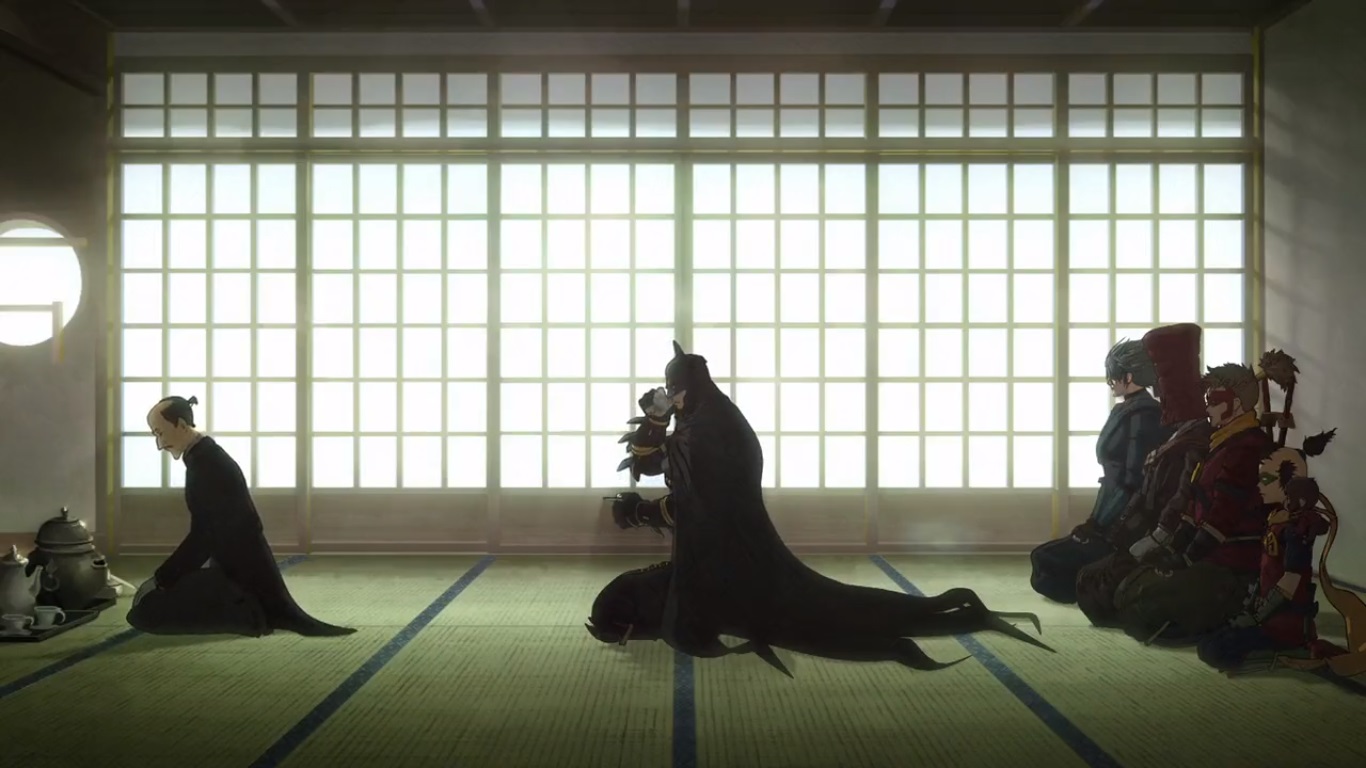
Alfred – now wearing a top-knot – serves Batman tea as they prepare for battle.
The film is not overtly disrespectful towards Japanese culture. Throughout the film, Batman’s allies praise the ninja’s martial arts skills, the prowess of Japanese blacksmiths, and the cuisine. Gorilla Grodd indulges in an onsen (Japanese hot spring). Alfred tries his hand at mastering local cooking techniques. Nightwing, Red Hood, Robin, and Red Robin learn the ways of the ninja from the Bat Clan. And yet, the character that best sums up the film’s relationship to Japanese culture is Catwoman. Before returning to present-day Gotham City, she acquires a valuable porcelain vase. She then sells it to an antique store: “I always keep my out for interesting souvenirs. You didn’t expect me to leave empty-handed, did you?”
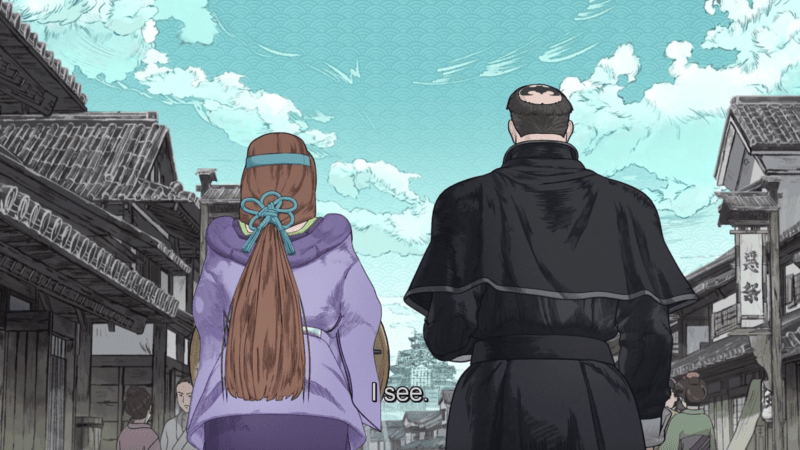
Batman and Catwoman disguise themselves as missionaries.
The heroes and villains of Gotham City, unfortunately, behave much like Western tourists and Hollywood itself. Japan turns into a scenic backdrop and an amusement park for their pleasure and amusement, while the people of Japan remain hidden from sight. They only feature as bewildered townspeople running away from the castle-robots, or as a mostly-silent ninja clan patiently waiting for Batman to fulfill the prophecy and allow the country to “return to the way it was.”

Bane inexplicably appears as a sumo warrior.
Batman Ninja’s overt departure from realism makes its Orientalist and white saviour trappings appear to be less objectionable, but it ultimately serves as yet another cinematic vision of Japan that offers nothing more than exotified escapism. One can only hope that future anime collaborations will depart from these familiar visual cliches, exotic signifiers, and stereotypes.
-
OFFENDER: Warner Bros.
CATEGORY OF OFFENSE: Denigration ( Reinforces Stereotypes)
MEDIA TYPE: Movie
OFFENSE DATE: April 1, 2018



